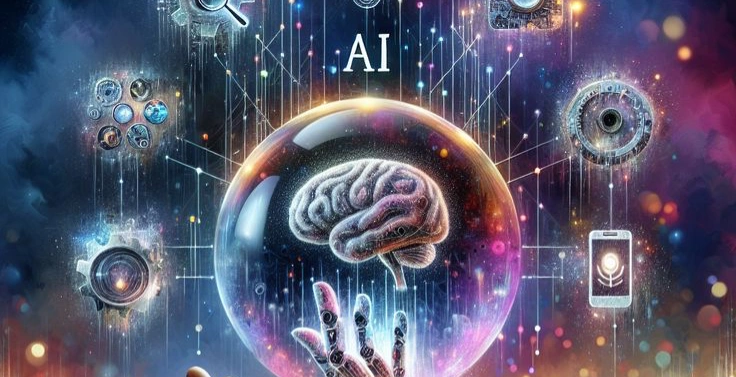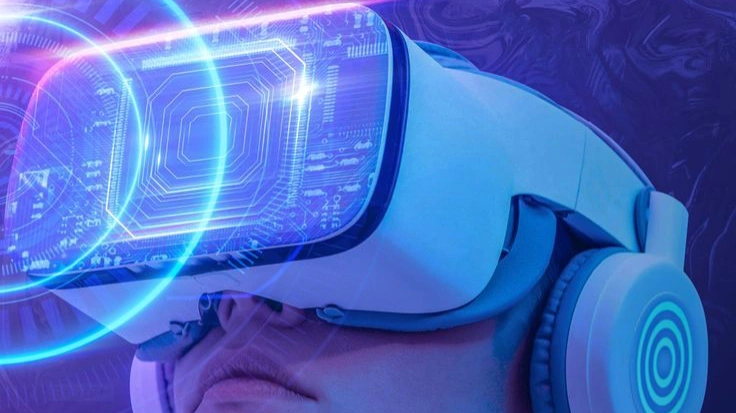The Digital Revolution: A New Way of Living
The digital revolution has radically transformed the world in just a few decades. What once seemed like science fiction — instant video calls, voice-controlled devices, contactless payments, and remote work — is now part of everyday life. The internet, smartphones, and artificial intelligence have not only made tasks more convenient but have also created an entirely new reality in which we live, work, learn, and connect.
One of the most visible changes brought by technology is in communication. Where letters once took weeks and phones were attached to walls, now we can instantly send a message, start a video call, or join an international online meeting with a tap. Social media allows us to connect globally, share real-time updates, ideas, and emotions. Yet, these benefits come with challenges: digital addiction, shorter attention spans, and blurred personal boundaries are growing concerns.
Another major area of transformation is education. Online courses, remote learning platforms, video lectures, and mobile apps have made knowledge more accessible than ever. A student in a rural village can now study programming at Harvard or take a finance course from London. But this also demands new skills: the ability to evaluate information critically, stay self-motivated, and adapt to digital learning environments.
The world of work has changed no less. Remote work, freelancing, flexible hours, and automation are now common. Businesses are moving online, and new careers are emerging — from cybersecurity experts to digital marketers and AI developers. These shifts bring opportunity, but also require constant learning and the ability to adapt to rapid change.
Technology’s impact on health is another important topic. We now have apps that monitor sleep, physical activity, stress levels, and even offer telemedicine. However, issues such as sedentary lifestyles, screen fatigue, and digital dependency are on the rise. It is becoming increasingly important to use technology mindfully — setting boundaries, taking screen breaks, moving more, and prioritizing in-person connections.
In conclusion, technology has become inseparable from modern life. It brings incredible potential, but also new responsibilities. The key challenge of the 21st century is to maintain balance — using digital tools to enhance, not replace, real life. Developing this balance may be one of the most essential life skills for our generation and the ones to come.

The digital revolution has radically transformed nearly every aspect of life in just a few decades. What once belonged in the realm of science fiction — instant video calls, voice-controlled assistants, contactless payments, and global remote work — has become the fabric of our daily experience. We now live in a world where the internet, smartphones, cloud computing, and artificial intelligence have not only made tasks more convenient but have redefined how we live, work, learn, socialize, and even think.
One of the most visible and personal transformations is in communication. There was a time when sending a letter meant waiting days or weeks for a reply, and phones were landline devices shared by households. Today, with a single tap, we can message someone across the world, host real-time video calls, or share life updates with hundreds of people simultaneously via social media. These platforms have allowed us to maintain relationships, build communities, and even amplify voices in powerful social movements.
But with such connection also comes new challenges:
- Digital addiction and the compulsion to constantly check notifications
- Shortened attention spans and difficulty focusing
- Blurred boundaries between personal and professional life
- Mental health concerns, such as comparison, FOMO (fear of missing out), and online harassment
In the realm of education, technology has unlocked unprecedented access. Online courses, video tutorials, virtual classrooms, and educational apps have made learning borderless. A student in a remote village can attend a coding bootcamp in Silicon Valley, while a working adult can study psychology at Oxford from their living room. Yet this digital expansion also demands new digital literacy skills:

- The ability to evaluate sources critically
- The discipline for self-paced learning
- Comfort with digital collaboration tools
- Awareness of cybersecurity and data privacy
The world of work has evolved no less. The rise of remote work, the gig economy, and automation has reshaped traditional job structures. Many roles are now location-independent, and new professions — from AI ethics consultantsto blockchain developers — are emerging. Companies are increasingly relying on digital infrastructure, while individuals must constantly update their skill sets to remain relevant. The idea of a “job for life” is being replaced by a model of continuous growth and adaptation.
Technology’s role in health and wellness is equally transformative. Fitness trackers, sleep monitors, meditation apps, and telehealth platforms allow people to track, manage, and consult on their health like never before. We can detect irregular heart rates, count steps, manage nutrition, and access therapy — all from our phones. However, digital health also presents new risks:
- Sedentary lifestyles due to screen time
- Disrupted sleep cycles from blue light exposure
- “Zoom fatigue” and chronic screen exhaustion
- Reduced in-person social interaction
This highlights the need for digital mindfulness — the practice of using technology with intention, setting limits, unplugging regularly, and reconnecting with nature, people, and self.
In conclusion, technology is no longer a separate tool — it’s woven into the fabric of modern life. It offers immense potential to improve our lives, expand knowledge, and connect humanity. But it also asks for responsibility, discipline, and discernment. The key challenge of the 21st century is not whether we adopt new technologies — but how we integrate them without losing ourselves.
To thrive in this new era, we must develop a balanced relationship with technology — one that enhances rather than replaces real life. That balance may become one of the most essential life skills for our generation — and a legacy of wisdom we pass on to those who follow.
Close